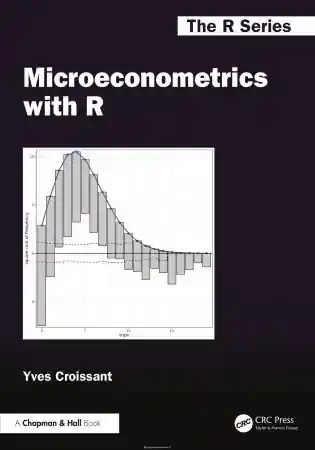
Principles of Economics, 8th Edition
- Length: 731 pages
- Edition: 8th
- Language: English
- Publisher: Palgrave Macmillan
- Publication Date: 2013-12-05
- ISBN-10: 0230249299
- ISBN-13: 9780230249295
- Sales Rank: #2740696 (See Top 100 Books)
Alfred Marshall, Principles of Economics (1890) – Founder of Modern (Neo-classical) Economics. His book Principles of Economics was the dominant textbook in economics for a long time and it is considered to be his seminal work.
Table of Contents
Book I: Preliminary Survey
1 Introduction
2 The Substance of Economics
3 Economic Generalizations or Laws
4 The Order and Aims of Economic Studies
Book II: Some Fundamental Notions
1 Introductory
2 Wealth
3 Production, Consumption, Labour, Necessaries
4 Income. Capital
Book III: On Wants and Their Satisfaction
1 Introductory
2 Wants in Relation to Activities
3 Gradations of Consumers’ Demand
4 The Elasticity of Wants
5 Choice between Different Uses of the Same Thing. Immediate and Deferred Uses
6 Value and Utility
Book IV: The Agents of Production, Land, Labour, Capital and Organization
1 Introductory
2 The Fertility of Land
3 The Fertility of Land, continued. The Tendency to Diminishing Return
4 The Growth of Population
5 The Health and Strength of the Population
6 Industrial Training
7 The Growth of Wealth
8 Industrial Organization
9 Industrial Organization, continued. Division of Labour. The Influence of Machinery
10 Industrial Organization, continued. The Concentration of the Specialized Industries in Particular Localities
11 Industrial Organization, continued. Production on a Large Scale
12 Industrial Organization, continued. Business Management
13 Conclusion. Correlation of the Tendencies to Increasing and to Diminishing Return
Book V: General Relations of Demand, Supply and Value
1 Introductory. On Markets
2 Temporary Equilibrium of Demand and Supply
3 Equilibrium of Normal Demand and Supply
4 The Investment and Distribution of Resources
5 Equilibrium of Normal Demand and Supply, continued, with Reference to Long and Short Periods
6 Joint and Composite Demand. Joint and Composite Supply
7 Prime and Total Cost in Relation to Joint Products. Cost of Marketing. Insurance against Risk. Cost of Reproduction
8 Marginal Costs in Relation to Values. General Principles
9 Marginal Costs in Relation to Values. General Principles, continued
10 Marginal Costs in Relation to Agricultural Values
11 Marginal Costs in Relation to Urban Values
12 Equilibrium of Normal Demand and Supply, continued, with Reference to the Law of Increasing Return
13 Theory of Changes of Normal Demand and Supply, in Relation to the Doctrine of Maximum Satisfaction
14 The Theory of Monopolies
15 Summary of the General Theory of Equilibrium of Demand and Supply
Book VI: The Distribution of the National Income
1 Preliminary Survey of Distribution
2 Preliminary Survey of Distribution, continued
3 Earnings of Labour
4 Earnings of Labour, continued
5 Earnings of Labour, continued
6 Interest of Capital
7 Profits of Capital and Business Power
8 Profits of Capital and Business Power, continued
9 Rent of Land
10 Land Tenure
11 General View of Distribution
12 General Influences of Progress on Value
13 Progress in Relation to Standards of Life
Appendix A: The Growth of Free Industry and Enterprise
Appendix B: The Growth of Economic Science
Appendix C: The Scope and Method of Economics
Appendix D: Uses of Abstract Reasoning in Economics
Appendix E: Definitions of Capital
Appendix F: Barter
Appendix G: The Incidence of Local Rates, with Some Suggestions as to Policy
Appendix H: Limitations of the Use of Statical Assumptions in Regard to Increasing Return
Appendix I: Ricardo’s Theory of Value
Appendix J: The Doctrine of the Wages-Fund
Appendix K: Certain Kinds of Surplus
Appendix L: Ricardo’s Doctrine as to Taxes and Improvements in Agriculture







